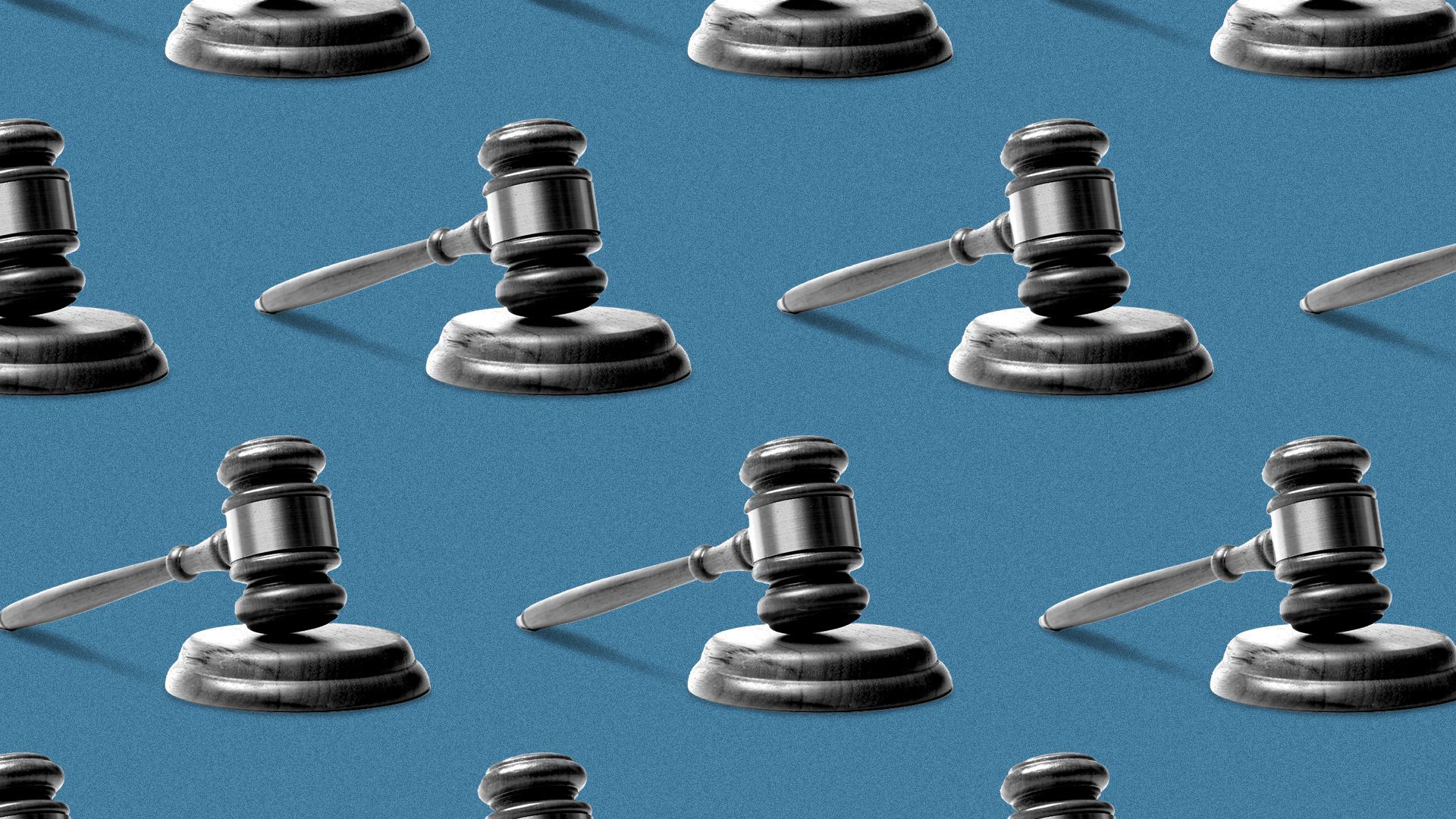Conservative courts could rescue tech
Add Axios as your preferred source to
see more of our stories on Google.

Illustration: Brendan Lynch/Axios
The Biden administration's push to increase competition in the technology industry could be on a collision course with a formidable obstacle: the courts.
Why it matters: Regulatory agency actions — whether it be adopting new rules or bringing enforcement cases against companies — are almost always challenged and litigated in the court system.
The big picture: As president, Donald Trump appointed 226 federal judges, leaving a huge mark on the judicial system, particularly appellate courts. Conservative judges on benches across the country tend to take a narrower view of antitrust law focused on proving "consumer harm" to justify antitrust enforcement.
- While Big Tech issues don't necessarily map to traditional political lines, free market advocates have already made the case that Biden's sweeping competition executive order could bring unnecessary government intervention and inadvertently undermine competition rather than improve it.
- "For the past 40 years the courts have required agencies to offer evidence that their antitrust actions will make consumers better off," said Neil Chilson, former FTC chief technologist and senior research fellow for technology and innovation at the Charles Koch Institute.
- "If the FTC or DOJ bring politicized cases or cases focused on protecting competitors, where they cannot show that consumers will be better off, courts will be a major obstacle," he said.
The latest: Proponents of taking antitrust measures against Big Tech were dealt a huge blow last month when a federal district judge dismissed the FTC's December complaint against Facebook, which asked the court to unwind Facebook's acquisitions of Instagram and WhatAapp, among other things.
- The judge said the FTC's complaint was "legally insufficient" in making the case that Facebook has monopoly power.
- "It is almost as if the agency expects the court to simply nod to the conventional wisdom that Facebook is a monopolist," Judge James Boasberg of the D.C. Federal District Court wrote in his ruling.
- The FTC has to decide whether to refile the case by Aug. 19.
What's happening: That ruling has made progressives push harder for Congress to enact stronger antitrust rules while giving additional clarity and authority to the key agencies — the FCC, DOJ and FTC.
- "It's more than the courts taking a narrow view of antitrust law. Even if these cases are successful, they focus on a particular company and a particular behavior," said Charlotte Slaiman, competition policy director at Public Knowledge.
- "So we need more comprehensive legislative solutions to the competition problem in Big Tech," she said. "We can't wait to see how the rulemakings or cases play out."
As the FTC's experience has shown, strong action targeting Big Tech will be hard to sustain without legislation, said Andrew Schwartzman, senior counselor for the Benton Institute for Broadband & Society.
- "Even before the influx of new Trump judges and Justices, the courts have been getting tougher and tougher on economic regulation issues," he said.
Yes, but: Despite the headwinds, agencies still have a chance of winning in appellate courts by building strong factual records and staying within the lines of legal precedent, Schwartzman added.
What to watch: Facebook and Amazon are trying to get FTC Chair Lina Khan to recuse herself from proceedings involving them. Biden's nominee to lead the DOJ's antitrust division, Jonathan Kanter, may face similar recusal pressure from Google.
- Even if they aren't forced to recuse themselves from cases, Khan's and Kanter's backgrounds as advocates could become politicized and drag out cases in circuit courts.
